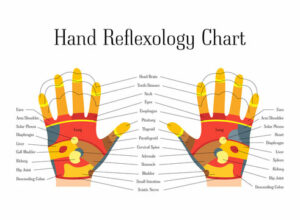Supporting patients who are nearing the end of their lives can offer a unique window into the concerns that many of us have when thinking about life and our own death for healthcare professionals who work in the palliative and hospice care fields. Many of us are curious about “what actually matters.”
Leading palliative care and hospice expert Dr. Simran Malhotra is now sharing personally how her patients have changed the way she lives her own life in an exclusive conversation with Health Digest in the hopes that it may encourage others to do the same.
Dr. Malhotra says, “If we let it, death might be our greatest lesson. It has a way of helping us see things in a different light and forcing us to reconsider our priorities.
Common regrets in the end
Dr. Malhotra questions patients about their own values when it comes to regrets. The two questions “What brings you joy?” and “What is most important to you?” are ones I ask practically all of my patients. I’ve learned through these inquiries that, despite everyone having unique tales, regrets are often the same when the story draws to a close.
She reveals that one of the three major regrets expressed by patients frequently
- was not spending more time with family and friends, including years spent apart from a loved one because of a little argument.
- Another typical regret is that one spent too much time working and not enough time with their families or oneself.
- Last but not least, she discovered that patients’ third-most prevalent regret was
- lack of courage to pursue a life true to their innermost self, their passions, and their desires, rather than living for other people’s expectations.
Everyone dies but not everyone lives well
Dr. Malhotra claims that there is much we can learn from her patients’ life experiences by hearing about their regrets. Don’t take your loved ones for granted, she advises, and make time for them. “You never know when it may be your final day with someone since life is short.”
Even while daily life and work will inevitably tug us in a variety of ways, frequently checking in with ourselves may help us figure out if we’re allocating our time and energy in a balanced manner.
Dr. Malhotra says, “Work to live, don’t live to work.” “Taking time off from work to spend with your family or do something you like will never be something you regret. However, you could regret working excessively and skipping out on the magic moments in your life.
Common emotions people express before they pass
Despite the fact that optimism predominates, Dr. Malhotra says patients frequently suffer dread, worry, and despair before they die away. Many express their uncertainty about the future, worries for their families, dread of probable pain, and grief about leaving the world and their loved ones behind. However, a lot of people experience serenity.
“I’ve witnessed people who were afflicted with incapacitating symptoms including discomfort, respiratory problems, social isolation, loss of control, and independence. But despite all they are going through, hope is the one thing that they all cling to.
What dying people are usually most proud of at the end of life
Dr. Malhotra claims that rather than financial belongings, patients frequently express feeling most proud of personal connections, significant events, or a loved one’s accomplishments as they near the end of their life.
Family comes first, says Dr. Malhotra. “Really, what it comes down to is that it’s always about their relationships or about how happy they are of their children or great-grandchildren or the things that they’re doing with their lives and their education and the things that they’ve done.”
Dr. Malhotra advises asking ourselves the “rocking chair test,” a set of leading questions, to assess what we are most proud of.
What people often say before they die
According to Dr. Malhotra, a patient’s last words frequently change depending on whether they feel fulfilled. It hasn’t been the case for the majority of my younger patients, she says, “but my senior patients frequently relate things like ‘I’m at peace and I’ve lived a nice life’.” “Their message is essentially, ‘I’m not ready to die. I still have a lot of living left to do.
However, Dr. Malhotra doesn’t think that age is always the defining characteristic. “I believe it has more to do with a sense of unfinished business than it does with age. The older generation has had more time to live. In contrast, the young are still in the process of life.

